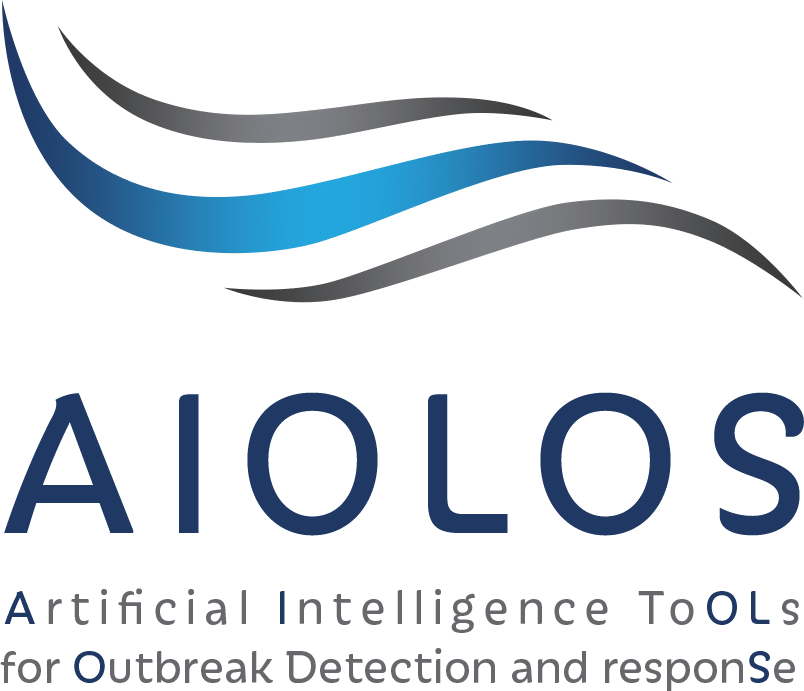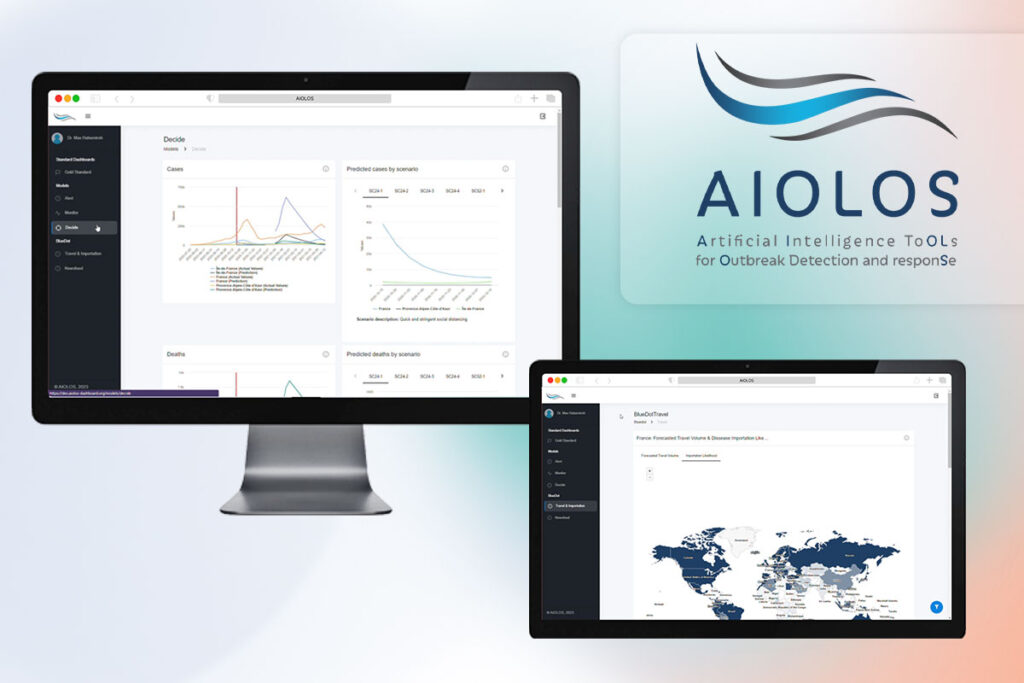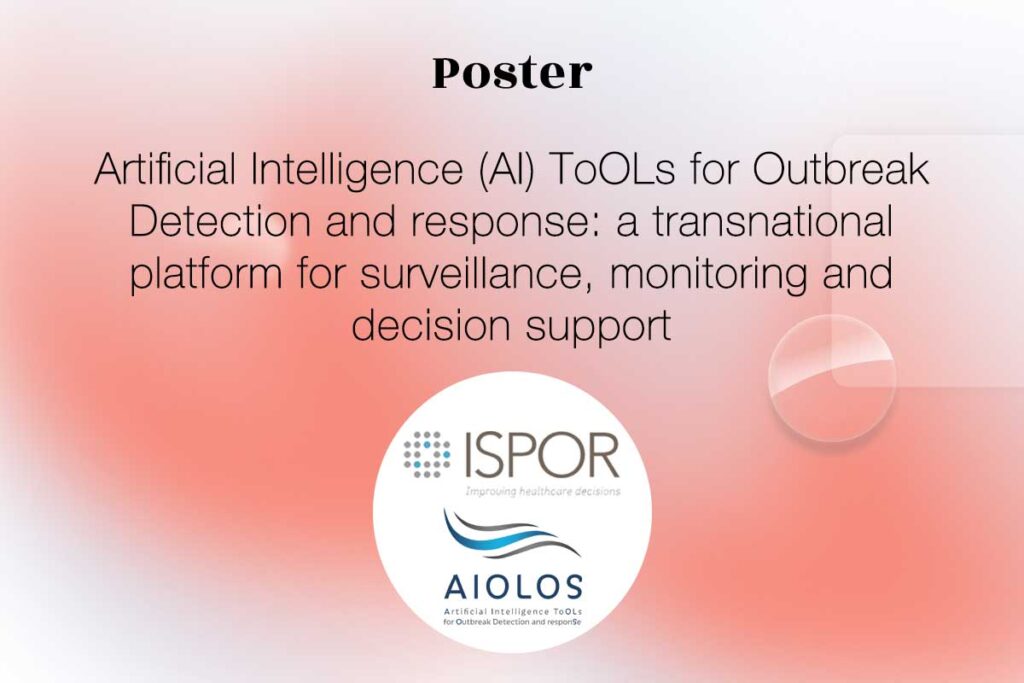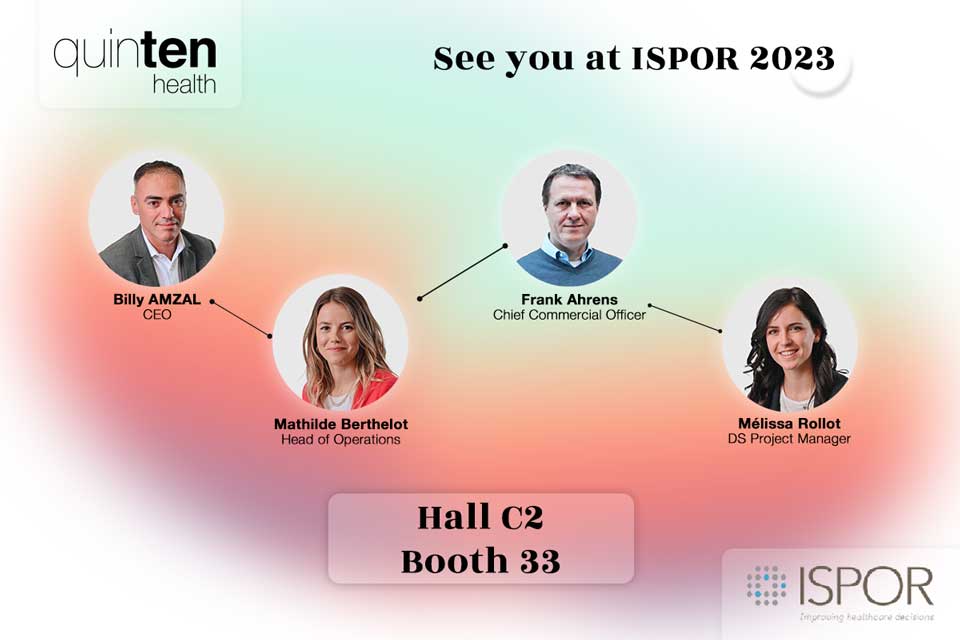AIOLOS Project

Artificial Intelligence ToOLs for Outbreak Detection and responSe
About AIOLOS
Artificial Intelligence ToOLs for Outbreak Detection and responSe is a Franco-German project to develop a platform for early detection and monitoring of respiratory pathogen epidemics.
The platform will leverage real-time data from multiple data sources, advanced artificial intelligence, and predictive modelling to support decision making. AIOLOS consortium is composed of 5 other partners, including Sanofi in France and the Fraunhofer-Gesellschaft in Germany who lead the consortium, and Impact Healthcare, CompuGroup Medical SE & Co. KGaA, umlaut company, part of Accenture.
Objectives of the AIOLOS project
The objective of AIOLOS is to develop a web-based monitoring and decision support tool focused on respiratory pathogens informed by a cloud-based multidimensional data platform. Based on this breadth of data, AI methods in combination with mathematical modeling will be applied to detect and characterize early signs of a viral epidemic, monitor and inform decision making on action measures to minimize its social, public health and economic impact.
This is primarily a data integration effort, aiming at making the best use of various data types already available but not always readily and timely accessible. Initial focus will be to address influenza, build on SARS-Cov-2 experience and use these ongoing case studies in France and Germany as a basis for addressing future challenges.
This evidence based decision-making AIOLOS dashboard will allow policy/decision makers to:
1. ALERT: with an early warning system in case of respiratory virus outbreak/pandemic threat (using baselines value parameters)
2. MONITOR:
1. monitor in real time the spread of an epidemic (from a clinical, sociological and virological point of view) and the effectiveness of the potential ongoing/past interventions;
2. monitor disruption of other basic health services (screening, comorbidity related services).
3. DECIDE:
1. The optimal action measure by testing different non-pharmaceutical interventions (such as curfews and shutdowns), pharmaceutical interventions (vaccination program and treatment scale up) and organizational measures for prevention and detection using modelling and prediction tools to evaluate their potential effectiveness according to different epidemic scenarios and to benchmark them relative to expert systems and existent monitoring networks;
2. The optimal allocation of health resources and interventions, by characterizing risk-group profiles along with the predictive factors of severe/fast progressing or more transmissible, but less severe forms of the diseases (“risk group” applies to people with specific individual characteristics but it takes also into account geospatial information, mobility data, social media, meteorological and micro-environmental influences).
Quinten Health’s contributions:
In this project, each work package will have a designated leader responsible for organizing the activities and communicating with relevant stakeholders.
Quinten Health works on all WPs, and has taken the co-lead on WP2 on the Data specifications, Identification/mapping of data sources, conception and development of data ingestion, data infrastructure and management and on WP3, which aims at the planning, development and validation of an integrative inferential and predictive model, leveraging all available data sources, designed for ALERT, MONITOR, and DECIDE.
Find out more:
AIOLOS INSIGHTS
AIOLOS project’s Minimum Viable Product (MVP) sh...
We had the occasion to highlight the collective initiatives of the AIOLOS project with an informative poster at ISPOR Europe 2023. This poster aims...
Artificial Intelligence (AI) ToOLs for Outbreak De...
Authors: M. Génin, J. Botz, L. Coudeville, M. Eisenlauer, T. Fauvel, F. Huschka, N. Lambert, D. Wang, V. Bosch Castells, C. Commaille-Chapus, B....
Heading to ISPOR 2023, a deepdive in health econom...
Quinten Health joins ISPOR Europe 2023, the leading European conference for health economics and outcomes research (HEOR) in Copenhagen.We're...



